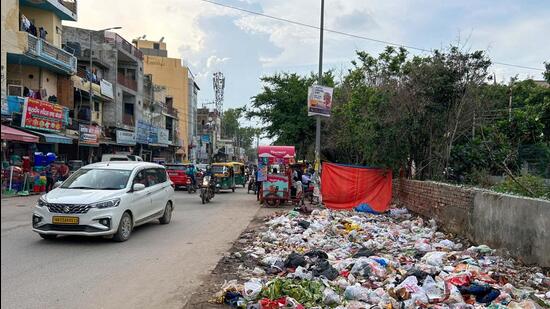Home / Environment / Gurugram Introduces Strict New Waste Bylaws with Hefty Fines
Gurugram Introduces Strict New Waste Bylaws with Hefty Fines
4 Oct
Summary
- Gurugram introduces 5-bin waste segregation system
- Fines up to ₹1 lakh for dumping waste, ₹500 for littering
- Bulk waste generators required to process wet waste on-site

In October 2025, the Municipal Corporation of Gurugram (MCG) has prepared a stringent set of new Solid Waste Management and Handling Bylaws, which are expected to be implemented in the coming weeks. The bylaws aim to overhaul the city's sanitation system and promote better waste management practices.
Under the new regulations, Gurugram residents, institutions, and commercial establishments will be required to segregate their waste into five color-coded bins: green for biodegradable waste, blue for non-biodegradable, red for domestic hazardous waste, yellow for sanitary/biomedical waste, and black for e-waste. Builders and residents will also need to use white bags for construction and demolition waste.
The bylaws introduce a strict penalty system, with fines starting at ₹200 for households and rising to ₹1,000 for repeated violations of the segregation rules. Burning of solid waste in the open will attract fines of ₹5,000 to ₹20,000, while dumping waste on roads or public spaces could result in penalties ranging from ₹25,000 to ₹1 lakh, along with possible legal action. Individuals found littering in public places could be fined ₹500.
Additionally, institutions generating more than 100 kg of waste per day, such as hotels, hospitals, and large housing complexes, will be classified as Bulk Waste Generators and will be required to process their wet waste on-site through composting or other methods. Street vendors will also be prohibited from using single-use disposable items, and event organizers with over 100 participants will need to inform the MCG, avoid disposables, and pay a fee for waste management.
The MCG hopes that these measures will not only reduce the pressure on the city's waste collection points and landfill sites but also promote a culture of segregation and recycling at the household level, ultimately leading to a cleaner and more sustainable Gurugram.




